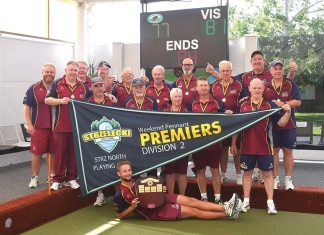AS the searchlight shines on illicit substances in the Australian Football League, former Hawthorn star and Heyfield player-coach Adrian Cox revealed to The Express recreational drug use was “a hell of a lot worse” in his playing days.
Cox, who spent six years at the Hawks, said AFL drug culture had actually softened over time, and it was more prevalent in bygone eras.
“Recreational drug use was a lot worse when I was there and a lot worse before my time too,” he said.
“Unless they keep them (the players) in a cage there is always going to be problems and with society the way it is today, they’re a part of it, so there’s always going to be problems.”
The 32 year-old, who came to prominence in the first half of the noughties, was part of the last generation of players without full time sports scientists, dieticians and other supplementary support staff.
Cox said while recreational drug use was rife, he was unaware of any instances where performance enhancing substances were taken.
“There was nothing… at Hawthorn, like what is happening today as far as performance enhancing and injections and that sort of stuff,” he said.
“When I first started there were some things that we’d take, but it was more like in the same category as red bull for an energy boost.
“The only injections we got were painkillers.”
With the growing emphasis on sport as a business, Cox believed the use of illegal supplements was a natural progression given the pressure for clubs to perform.
“It’s a lot more business sense now; they always want to get an edge and they’re going to do what they can to get the edge,” he said.
Gippsland Power regional manager Peter Francis, who played in the AFL for Carlton in the late 1970s, said performance enhancement had only become an issue in recent years since the widespread introduction of sports scientists.
Francis said Power did not utilise sports scientists, preferring to rely on dieticians instead, and had a comprehensive drug education program in place for its players which also covered religious and racial vilification.
“We certainly cover all those bases off right across the board,” he said.
“It’s drummed into them all the time.”
Given recent events, Francis said it was not unlikely to see drug testers at Power headquarters this season, but he said team doctors were vigilant with players about banned substances, right down to Sudafed.
Despite criticism leveled at player ignorance in the Essendon saga, Francis sympathised with the plight of the footballers allegedly involved.
“One of the things as a player, you have this trust in the club when you go there that they’ve got your welfare and wellbeing at hand and if they say ‘we want you to take this’ you take it thinking that everything’s okay,” he said.
“I can understand from the players point of view that they thought everything was above board, and we still don’t know, everything could come back above board and be okay.”











